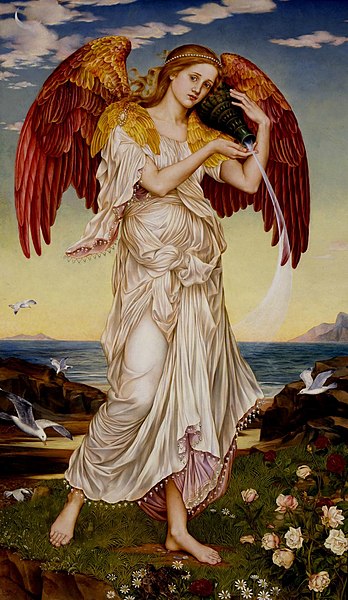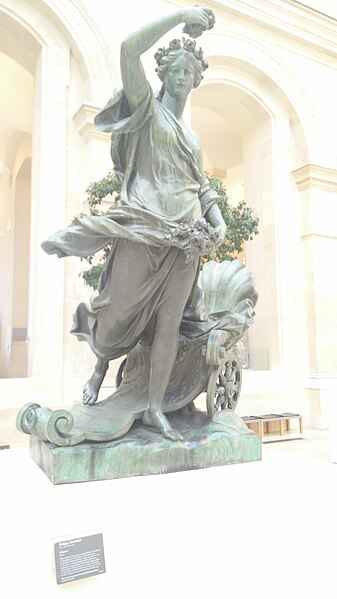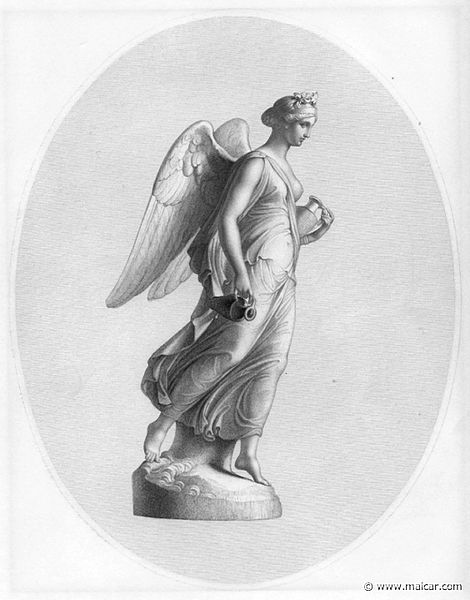Astraea, Astrea, Astria or Austräa, in ancient Greek religion, is a daughter of Astraeus and Eos. She is the virgin goddess of justice, innocence, purity and precision. She is closely associated with the Greek goddess of justice, Dike. She is not to be confused with Asteria, the goddess of the stars and the daughter of Coeus and Phoebe. The main belt asteroid 5 Astraea is named after her, and her name was also suggested for the planet Uranus.
Astrea, the virgin goddess of Innocence and purity, by Salvator Rosa
An 1886 bas-relief figure of Astraea in the Old Supreme Court Chamber at the Vermont State House.
In ancient Greek mythology and religion, Eos is the goddess and personification of the dawn, who rose each morning from her home at the edge of the river Oceanus to deliver light and disperse the night. In Greek tradition and poetry, she is characterized as a goddess with a great sexual appetite, who took numerous lovers for her own satisfaction and bore them several children. Like her Roman counterpart Aurora and Rigvedic Ushas, Eos continues the name of an earlier Indo-European dawn goddess, Hausos. Eos, or her earlier Proto-Indo-European (PIE) ancestor, also shares several elements with the love goddess Aphrodite, perhaps signifying Eos's influence on her or otherwise a common origin for the two goddesses. In surviving tradition, Aphrodite is the culprit behind Eos' numerous love affairs, having cursed the goddess with insatiable lust for mortal men.
The Gates of Dawn, by Herbert James Draper
Eos by Evelyn De Morgan (1895)
L' Aurore, 1693 bronze statue of Eos by Philippe Magnier (1647-1715), on display at Louvre Museum, France.
Eos, Sig. Guglielmi's drawing of a statue of Aurora by John Gibson (1790-1866).






